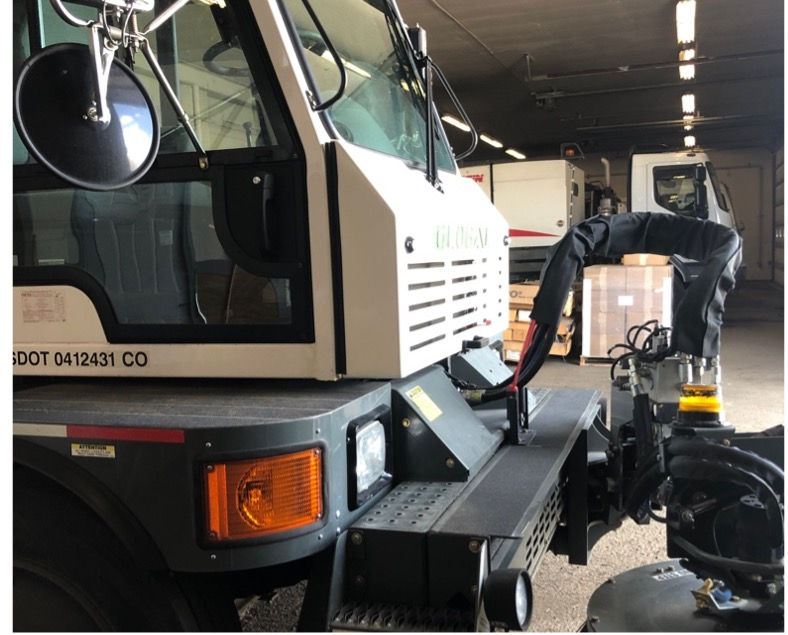Asian American Women at Colorado State University Share Their Perspective on Beauty Standards
- rosemeicarter
- Apr 18, 2021
- 6 min read
Updated: May 3, 2021
Skin whiteners are estimated to be a $31.2 billion industry by 2024 (Byrdie).
Most would say beauty standards are changing. Mental health is becoming increasingly important, and conversations are being held around the weight outward beauty carries in modern society.
If that's true, why is a product that drastically changes the way a person looks so prevalent?
I couldn't help but wonder what that statistic meant for beauty standards for everyone who isn't white, and that maybe the Western standard of beauty that is portrayed in movies, TV and magazines is put on a higher pedestal than I realized.
Growing up as an Asian American in the predominately white city of Colorado Springs, I thought about ways to look whiter to fit in with my friends. The first time I realized people looked at me differently came in middle school when I was told, "I knew you weren't Mexican, but I just knew you weren't one of us." I was shocked and hurt by the comment and wondered if and how I could be more like my friends. As I grew up, I learned to understand that my race is beautiful, unique and something to be proud of, but wondered if other Asian Americans struggled with the same thoughts I had growing up.
This article dives into how Asian American women see themselves in the Western ideal and how those beauty standards affected their lives. These conversations include Colorado State students' view on beauty through the lens of being Asian American.
.Isabelle Munsell, Sophomore Studying Statistics

“For Asian Americans or Asians just in general, we need to be as light as possible. You know our skin tone is yellow per se, but it’s more towards white. It’s obvious to tell someone’s Asian, but many people do whatever they can to look more white – skin bleaching, having a certain hair look, I have fake eyelashes on right now and that’s because I feel beautiful with them on even though I was given short Asian lashes. There’s this standard to be more white and that our own identity and own looks aren’t good enough. I think this idea comes from America and our history of immigration, racism, propaganda and advertisements always being geared towards white women who are skinny, with lighter skin, lighter hair, lighter eyes. That’s a lot of pressure for Asian women to conform. If it’s right there in your face all the time, it’s hard to let that go. I watched an interview with Aquafina and she talked about bringing her culture and heritage with her when she acts and I thought that was powerful because she’s not conforming to any social standards. She’s one of those women who’s standing up and saying, ‘I’m beautiful and we need more representation.’ This is an important conversation to have because we have come a long way to understand we are beautiful no matter what, even if our beauty looks different. We don’t need to be conforming ourselves because there’s a lot of power in in being an Asian American woman.”
Arlee Walls, Senior Studying Journalism and Media Communication
“Growing up, I was the biggest one out of all my friends. Asian people are thought to have very small chests and be small in stature. I am not like that. Asian women in particular are in such a weird position. Growing up, I lived in a predominantly white neighborhood and went to a predominantly white school. I was surrounded by women who were white and skinny and had white features. That was difficult for me to figure out because I would tell myself that maybe it was because I was Asian I didn’t have a boyfriend in high school, or I was the token Asian girl in

everything. We grew up seeing skinny white people on TV, magazines and books. Now that we’re older, we’re learning to figure ourselves out both professionally and personally. It’s interesting to see how much we’ve changed as a society. I feel like the whole perception of being healthy has completely changed from what it was 10-15 years ago. It's interesting to see us grow up with this idea but then grow out of it. I’ve thought ‘maybe if I don’t eat this, I’ll get smaller and look my friends,’ but that’s so much unhealthier than actually accepting who you are. Beauty standards for everyone are so damaging … feeling pressured to go to the gym all the time. Eating healthy. Vegan or vegetarian diets. I compared my body to my friends’ bodies in high school, and it was just very different. My chest was much larger. My hips were wider. I was short. I didn’t have the flat stomach, flat chest and long legs. I wondered how I was supposed to be comfortable in my own body when everyone around me was trying to make themselves comfortable with their bodies and they still looked smaller than I did. After time, I learned to love myself emotionally and physically. Gemma Chan is someone I look up to. She’s drop-dead gorgeous and so intelligent. She’s such an advocate for equality and Asian American beauty. I also went to middle school with this girl, who is a plus-sized model. She’s 5’11”, and half Thai. She’s all about body positivity. She’s all about being a tall Asian woman who has curves and a bigger bone stature. As Asian women, we’re stereotyped to be small, quiet and submissive. She threw all of that out the window. I’ve learned that there is no mold for beauty.”
Margot Jessen-Hegelbach, Freshman Studying Construction Management

"I grew up in Boulder, Colorado and was adopted from China. Boulder’s this little bubble, and when you step out of it, it’s like culture shock. Growing up there, I was the only Asian American in my friend group from the time I was five to 14 or 15. I had a lot of trouble fitting into beauty standards, and I kind of leaned into being a tomboy. I wore cargo pants, tennis shoes, baggy sweaters and would pull my hair into this really tight ponytail because I was a gymnast. I didn’t really care what I looked like because I had a different identity, but I would do things like stay out of the sun. My friends that were blonde or brunettes always had Sun In ... that spray that makes your hair lighter. It never worked for me. That was kind of an awakening for me … to realize there was nothing I could do about the fact I was Asian. I struggled with that in Boulder. Still, I don’t feel like I fit into that typical beauty standard in the U.S., but that’s also just such an unrealistic standard. It’s a visual standard because of magazines, TV and social media. But you know, people who you perceive as perfect also struggle with similar things. Just because they look so perfect on the magazine doesn’t mean they don’t struggle with depression or body dysmorphia. Lana Condor is beautiful but she struggles with body dysmorphia. Appearance only goes so far. My grandma always tells me, 'Beauty is only skin deep, but ugliness is to the bone.' I’m content with how I look. I feel like I fit in more now because now I’m content with how I am."
Abby Kingman, Senior Studying Natural Resource Conservation

"It’s important to talk about beauty standards because they change based on your environment. For Asians, it’s important to be more white, but in American culture everyone’s obsessed with being darker. There are stereotypes everywhere, so it’s important to be aware. I think Western beauty standards have affected the way I view myself, partly because where I grew up in Manitou Springs, where there was no diversity. There were definitely times growing up I tried to be more white just to fit in. Coming to a place like CSU was really nice because there are so many more people to interact with. Even just the classes people take are more eye-opening and they don’t focus so much on the colonial background. A lot of classes I’ve taken focus more on ethnic things, which I didn’t learn in high school. The way people view beauty standards are changing all over the board. Body image goes beyond race as well, and I’m happy to see that a wider diversity of people, like plus-sized models, are becoming more recognized."
Photos by Rose Carter



Comments